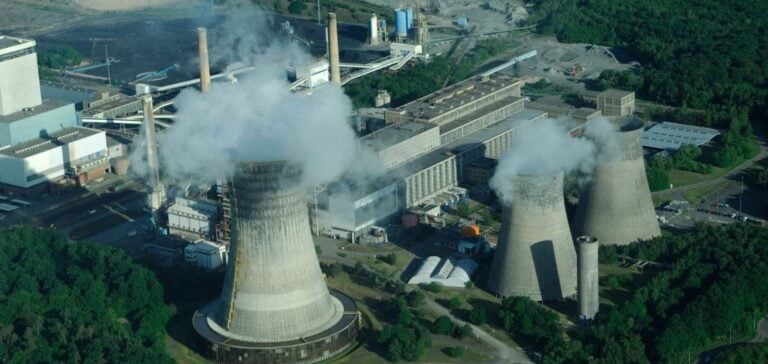The Saint-Avold coal plant, located in Moselle, resumed operations this Tuesday in the context of energy supply pressure and the arrival of winter temperatures. This restart, announced by the plant’s operator GazelEnergie, comes as the COP29 climate conference takes place in Baku, highlighting the contradictions in energy policies facing climate challenges.
Saint-Avold, one of the last two coal-based power generation sites in France, had closed in 2022 but was temporarily reopened in 2023 to meet national energy needs. Once again called upon for winter, the plant is expected, according to GazelEnergie, to operate around twenty days this year, during times of peak demand.
Temporary Activity While Awaiting Conversion
The plant employs a hundred workers and collaborates with over 150 subcontractors to ensure periodic operations. The government has confirmed that this activity is intended to meet specific winter demands, with the goal of permanently phasing out coal by 2027. However, the future of the site remains a topic of debate: while reconversion is on the agenda, the project remains under discussion.
Two main options are being considered for the plant’s reconversion: a transition to biomass and the establishment of a natural gas infrastructure. The Minister of State for Energy, Olga Givernet, expressed reservations about the gas option, emphasizing that France must move towards decarbonized energy sources to ensure its energy transition. Although natural gas is less polluting than coal, it does not meet the criteria for carbon-neutral energy. She suggested that only a transition to biogas or biomass could meet current environmental standards.
A Controversial Conversion
Despite partial government support, Saint-Avold’s gas conversion project faces some opposition. Thomas About, CFDT union representative at the plant, strongly defends the gas project, insisting that the plan is solid and that any delay in reconversion decisions will lead to more reliance on coal. According to him, government procrastination could not only extend the use of coal but also jeopardize job stability at the site.
The unions have issued strike notices, calling for clear answers on the plant’s transition. Employees highlight the risk of closure without a viable alternative by 2027, which could not only result in job losses but also a loss of skills and resources for the region.
A Complex Energy Situation
With this restart, France faces a paradox: while strong commitments are made to reduce greenhouse gas emissions, coal-based infrastructure is being reactivated to ensure energy supply stability. The other French coal power plant, located in Cordemais in Loire-Atlantique, is also scheduled to close in 2027, but without any announced reconversion plan, increasing pressure on political decisions for the country’s energy future.
The forthcoming choices for the Saint-Avold site will have significant implications for France’s decarbonization goals and the future of the regions involved. Depending on the directions taken, the plant could become a model of transition to cleaner energy or, conversely, a symbol of the challenges in phasing out coal amid high energy demand.






















